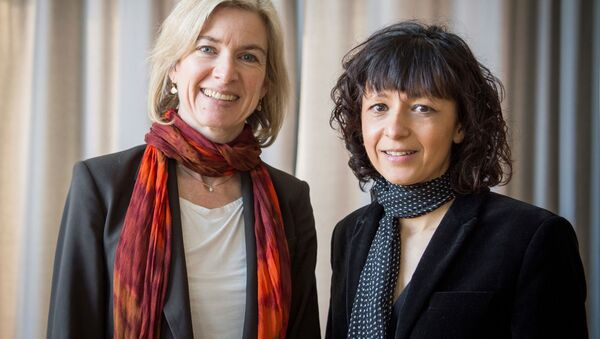Како је објавила Шведска краљевска академије наука, оне су награђене због „развоја методе инжењеринга генома“.
Emmanuelle Charpentier, awarded this year’s Chemistry Prize, was born in 1968 in Juvisy-sur-Orge, France.
— The Nobel Prize (@NobelPrize) October 7, 2020
She is Director of the Max Planck Unit for the Science of Pathogens, Berlin, Germany.https://t.co/We8u3YEtXEhttps://t.co/RoRDbHAOHx#NobelPrize pic.twitter.com/oM2oswF1Ca
Даудна и Шарпентје су 2012. године изумеле генетске маказе које су од тада почеле да се користе широм света.
This year’s Chemistry Laureate Jennifer A. Doudna was born in 1964 in Washington, D.C, USA.
— The Nobel Prize (@NobelPrize) October 7, 2020
She is a Professor at @UCBerkeley, USA and Investigator at @HHMINEWS.https://t.co/GMyJGnBMlThttps://t.co/CtXW7pRzop#NobelPrize pic.twitter.com/FK2tMfunW1
Захваљујући њима, научници могу са великом прецизношћу да мењају ДНК животиња, биљака и микроорганизама.
In their natural form, the CRISPR/Cas9 genetic scissors recognise DNA from viruses, but Emmanuelle Charpentier and Jennifer Doudna – awarded this year’s #NobelPrize in Chemistry – proved that they could be controlled so that they can cut any DNA molecule at a predetermined site. pic.twitter.com/zlOfyENt8V
— The Nobel Prize (@NobelPrize) October 7, 2020
„Ова технологија, која има револуционарни значај за науку, доприноси новим терапијама борбе против канцера. Сада је сан о потпуном излечењу наследних болести врло близу“, наводи се у образложењу.



